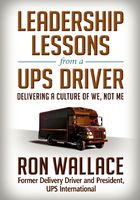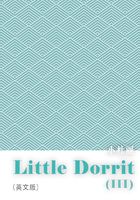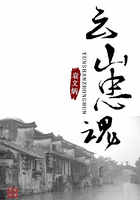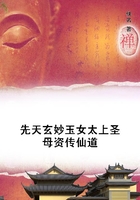For my sister
"Shit, shit, shit, shit, shit!" I'm crying with my mother over the phone. It's late evening, December 25, 2012, and Kayla,[1]my only sister and best friend, has been arrested for the seventh time in the past six years. She's in jail again-and this time, we're sort of hoping she'll stay there. "If she asks," I tell Mom, "I'm not bailing her out."
"Well, you know we're not," Mom says, her voice low and far away, a weary echo of words uttered in months and years past. "If she's in there, at least she'll be safe."
Jail, we agree, may be the only place that can save Kayla's life, staving off her burning dependency on heroin. Neither of us acknowledges that regardless of whether Kayla stays clean while incarcerated, sooner or later she'll be getting out.
"Do we know what she's in for?" I ask Mom.
"Does it matter?"
I think of Kayla, cuffed and listless, being dragged through the doors of the Cook County Jail, catching the eyes of women she's known before-in court, on the street, in juvenile detention, in jail, in prison. I wonder whether a part of her is relieved to be back.
Later, when I pick up the phone and hear a robotic voice announce, "You have a collect call from the Cook County Jail: press five to take the call," I press the hang-up button and get into bed.
The Hole
My attitude toward Kayla's incarceration was born out of desperation. She had overdosed three times within two months, passing out on the street, awakening in abandoned buildings or crowded hospitals, her pulse barely ticking. Yet my wish chafed against not only my love for her, but also my politics, my ideals, my sense of justice and truth. After all, I run a social justice-based news organization and have denounced the colossus that is the prison-industrial complex for as long as I can remember. For nearly a decade, I've corresponded with a number of people in prison, as both interviewees and pen pals, and I've learned much from them about the violence and hopelessness of the system. My understandings of the power structures that create prisons have been guided by the work of people like activist and scholar Angela Davis, a staunch prison abolitionist. How could I reconcile my wholehearted opposition to the prison-industrial complex with a desire to see my own sister locked up?
When I look back on that time, I can only comprehend it by acknowledging the insidious, persistent role that prison occupied in my mind. It was closely connected to the role it occupies in larger society: Incarceration serves as the default answer to many of the worst social problems plaguing this country-not because it solves them, but because it buries them. By isolating and disappearing millions of Americans (more than 2.3 million, making us the most incarcerated nation on the planet), prison conveniently disappears deeply rooted issues that society-or rather, those with power in society-would rather not attend to.
"Prison," writes Angela Davis, "performs a feat of magic." As massive numbers of homeless, hungry, unemployed, drug-addicted, illiterate, and mentally ill people vanish behind its walls, the social problems of extreme poverty, homelessness, hunger, unemployment, drug addiction, illiteracy, and mental illness become more ignorable, too. But, as Davis notes, "prisons do not disappear problems, they disappear human beings."[2] And the caging and erasure of those human beings, mostly people of color and poor people, perpetuates a cycle in which large groups are cut off from "mainstream society" and denied the freedoms, opportunities, civic dignity, and basic needs that allow them a good life.
In many jails and prisons, incarcerated people are tossed into a dank, dungeon-like solitary confinement cell when they are determined to have "misbehaved." It's dubbed "the Hole." Isolated and dark, it shuts out almost all communication with fellow prisoners and the outside. Guards control the terms of confinement and the channels-if any-by which words can travel in and out. The Hole presents a stark symbol of the institution of prison in its entirety, which functions on the tenets of disappearance, isolation, and disposability. The "solution" to our social problems-the mechanism that's supposed to "keep things together"-amounts to destruction: the disposal of vast numbers of human beings, the breaking down of families, and the shattering of communities. Prison is tearing society apart.
This country's most marginalized communities bear the overwhelming brunt of the devastation. But ultimately we are all caught up in the destruction, as the politics of isolation ruptures the human bonds that could otherwise hold together a safer, healthier, more just society.
The behemoth that encompasses the prison is called by many names. The most meaningful ones, I think, are those that convey the pervasiveness of its power: the way it infects the world outside as well as the people within.
Scholar and activist Beth Richie uses the term "prison nation," describing it as "a broad notion of using the arm of the law to control people, especially people who are disadvantaged and come from disadvantaged communities."[3] That control can take the form of prisons, jails, surveillance, policing, detention, probation, harsh restrictions on child guardianship, the militarization of schools, and other strategies of isolation and disposal particularly deployed against poor communities of color, especially black communities.
Others have used "prison nation" simply to demonstrate the system's vastness-how it infiltrates our culture and fuels our national politics, often in invisible ways. "Prison-industrial complex" (PIC) is another key term; Rachel Herzing of the prison abolitionist group Critical Resistance defines it as "the symbiotic relationship between public and private interests that employ imprisonment, policing, surveillance, the courts, and their attendant cultural apparatuses as a means of maintaining social, economic, and political inequities." The concept emphasizes how financial and political powers use prison and punishment to maintain oppression, making it look natural and necessary. Prison doesn't stop at the barbed wire fence, and it doesn't end on a release date.
Ninety-five percent of prisoners are released. They're emerging from their isolation poorer and more alienated than when they went in. They're coming out with fewer economic opportunities and fewer human connections on the outside. Some come home to find that "home" no longer exists. Many, like Kayla, fall into harmful patterns, sometimes in order to survive, sometimes because they feel they have nothing much to live for. Others are reincarcerated for the flimsiest of reasons as "parole violators," especially if they're black or brown or Native or gender-nonconforming or poor. More than 40 percent of those released return to prison within three years.[4]
Isolation does not "rehabilitate" people. Disappearance does not deter harm. And prison does not keep us safe.
We Can Do Better
A society built on the principles of freedom and shared humanity is possible. In fact, its seeds have already been planted, and they are growing every day. The second half of this book looks at what people are doing right now to dismantle the prison nation and deal with problems-both individual harm-doing and larger social wrongs-through connection rather than isolation.
All over the country, people are implementing community-based accountability and transformative justice strategies, making human connection both their jumping-off point and their objective. They're cultivating environments-classrooms, neighborhood programs, workplaces, homes-that foster antiracist, anti-classist, pro-humanity approaches to justice. They're combining new models of doing justice with larger movements for change, taking on the deep structural issues that drive the current system.
Overcoming imprisonment isn't just about climbing out of "the Hole." It's about collectively imagining and creating the culture in which we want to live, once we reach the surface. What follows is a portrait of a society coming apart-and some glimmerings of ways we can begin to come together.















